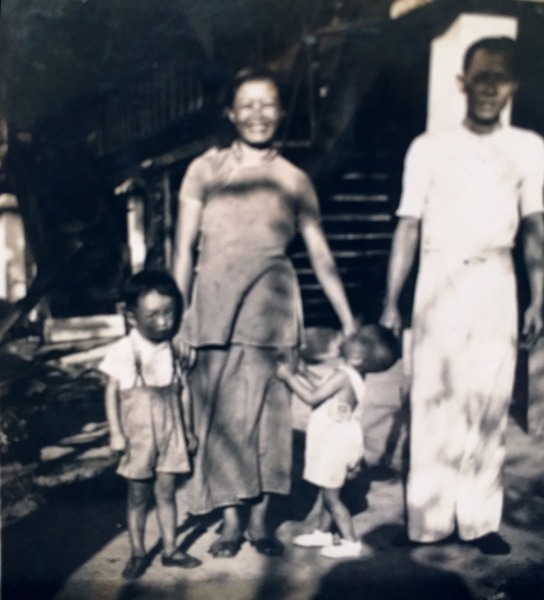 Singapore knows how to celebrate Christmas in style and seventy five years ago, it was no different: British residents were still going to dances and cocktail parties, hoping against hope that Singapore would see off the invading Japanese forces. My mother, Molly Lambert was a fifteen-year-old schoolgirl, living at No 3, ‘The Corner House’ on Singapore Naval Base, when she wrote this in 1941:
Singapore knows how to celebrate Christmas in style and seventy five years ago, it was no different: British residents were still going to dances and cocktail parties, hoping against hope that Singapore would see off the invading Japanese forces. My mother, Molly Lambert was a fifteen-year-old schoolgirl, living at No 3, ‘The Corner House’ on Singapore Naval Base, when she wrote this in 1941:
‘As the air-raids increased and the Japanese advanced towards Singapore, my father tried to persuade my mother to leave, with other evacuees, and go down to Australia. This she flatly refused to do, and I was in agreement – we three would stick together whatever happened.
A few people were leaving in dribs and drabs, and the navy was (it was rumoured) preparing to evacuate to Darwin. Plans then changed and we received the news that we were to prepare to be evacuated to an unknown destination. My memories are rather vague at this point, but afterwards I learned that my father had taken our dog to be ‘put down’. Our car was jettisoned, and all the alcohol in the house washed down the nearest sink.’
The official announcement of the departure of the Commander-in Chief was made on the front page of the Straits Times on 8 January 1942, the day after the first convoy left. It stated: Vice-Admiral Sir Geoffrey Layton, Commander-in-Chief Eastern Fleet, has left Singapore ‘to organise the Eastern Fleet so that the Allies can gain sea supremacy as soon as possible’. No mention was made of the destination of this convoy, nor that almost the entire spying operation and staff were on board, as officially the FECB didn’t even exist.
The convoy of Royal Navy ships sailing out of the Singapore Naval Base must have been a terrifying sight for the remaining residents, especially local Chinese who had nowhere to flee and whose own homeland was now in Japanese hands. They’d been led to believe that the British would protect them, but in the last chaotic days before Singapore fell, it was every man for himself. The furniture, clothes, car and other possessions the Lamberts had to leave behind could be replaced, but they were heartbroken to have to say their goodbyes to the Chinese family who worked for them.
I don’t remember what happened to our very loyal cook-boy, his wife and several children – I hope they survived to serve their Japanese masters. It was not until several years later that we learned that our house had received a direct hit.
I don’t know the names of my grandparents’ cook and his wife, but I have included their photograph in the hope that somebody might recognise them. I can only hope that those little boys grew up to be fathers and even grandfathers.
Extract: Castles in the Air: A Family Memoir of Love and Loss
Out now on Amazon: http://www.amazon.com/dp/B018KLSVUQ
Print version out in 2016